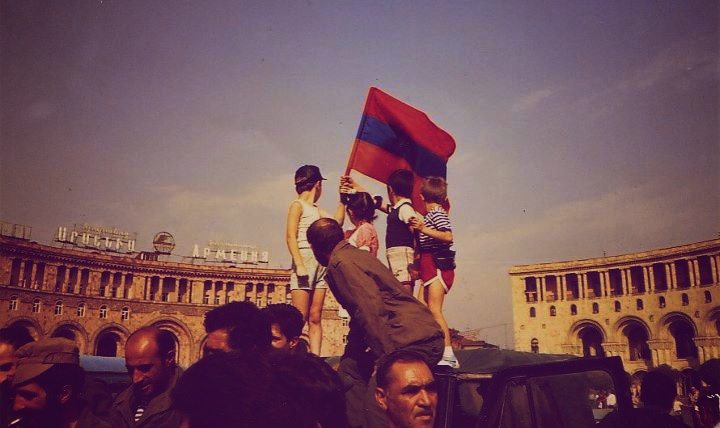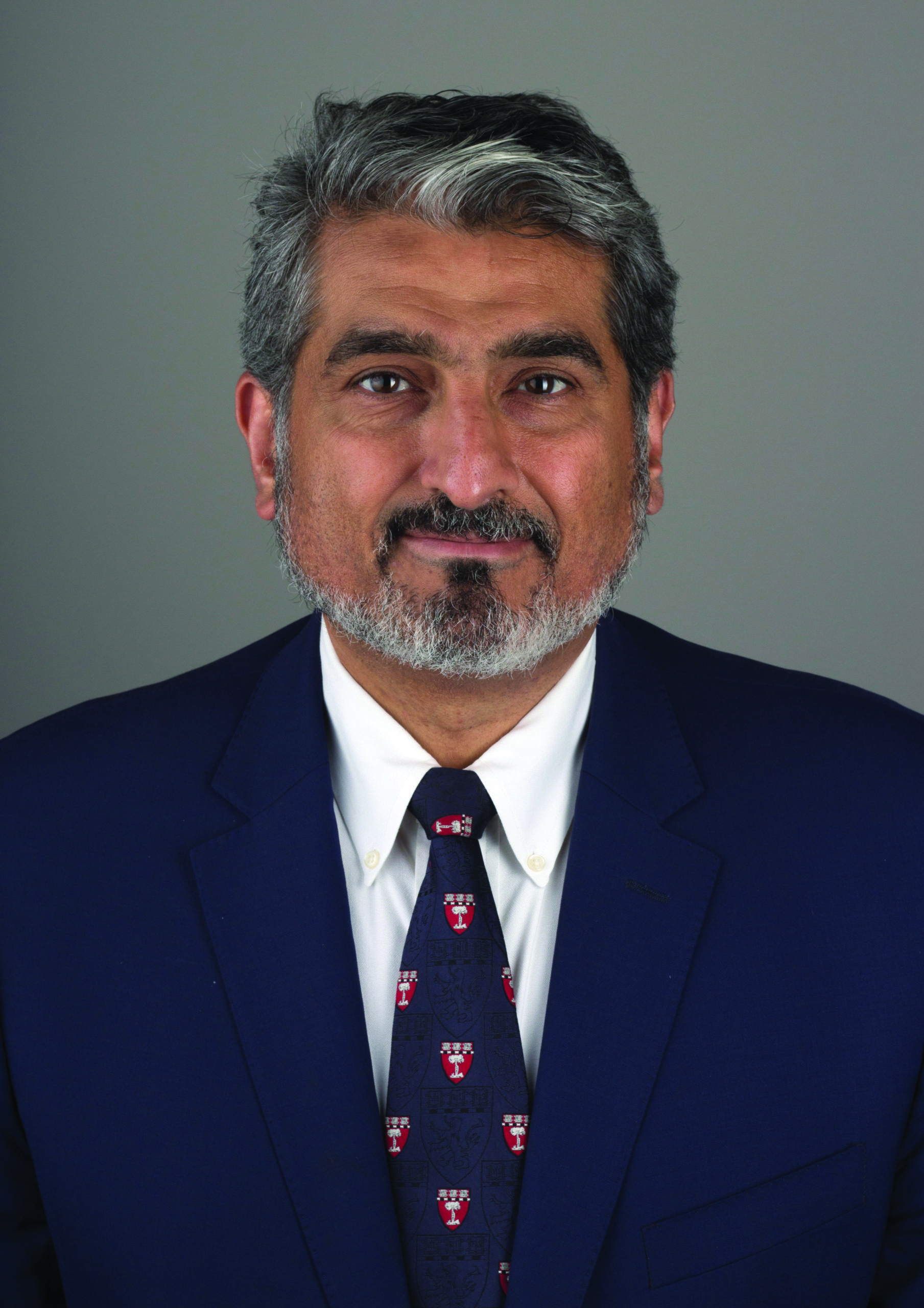
Author’s Note: This series aims to spark a conversation about our nation, defined as Armenia, Artsakh and the Diaspora, and the potential perils and opportunities ahead of us. Acknowledging that optimism and strategic thinking and planning are key components of our future success, we must temper them with our past experiences, our shortcomings and failures and our strengths. Otherwise, we are doomed to repeat the vicious cycle that we are currently in, with significantly worse outcomes as we see day by day. These pieces are not meant to be exhaustive nor definitive; rather they are meant to provide a nidus for additional conversation, high-level planning and execution, as time is not an ally in our current reality.
The Armenian nation is in a state of mourning, shock and indifference, rendering her incapable of visualizing a viable path tomorrow, one toward an independent and prosperous nation. Incapable or unwilling to accept the calamities that have befallen the Armenian nation, some have doubled down on their support for the system responsible for this calamity, and some have simply opted to detach themselves from the current predicament. It is much easier to decide that “others have made decisions for us and we must submit to it,” rather than getting one’s hands dirty toward building a nation, as imperfect as it may be.
our most important goal is to give the Armenian nation a reason and a realistic plan to believe in itself again
Those who foresaw the current calamity understood the catastrophic damage that a fall from the artificial euphoric high would inflict upon the nation – a fall that will require every available or imaginable ounce of resolve and strength and alignment of the best of conditions for Artsakh and Armenia to rise again. Therefore, our most important goal is to give the Armenian nation a reason and a realistic plan to believe in itself again and that its best days are yet to come. Inasmuch, this exercise is intended to provide a better understanding of the ills of the new and the old regimes to dissect the causes of our catastrophic failures, if we are clever enough not to repeat them. It aims to offer a potential solution that capitalizes on our strengths and capacities and sets conditions that we all must participate in, in order to build a strong, equitable and innovative nation with international, economic and military clout to thrive in a particularly challenging corner of the world.
Assigning blame to others or assuming a victim mindset removes all consequences from our actions or lack thereof, which stem from shirking of individual and social responsibilities. This is the escape route that we all have subscribed to, knowingly or unknowingly, which has reduced Armenia, a country with millennia-old history, to a group of individuals living on the same land, devoid of any social contract or responsibility toward one another or to the greater good, with a singular focus on maximizing personal gains. This fundamental problem must be laid bare and addressed before any meaningful steps can be made toward building a better Armenia and Artsakh.
How do we frame our problems and potential solutions?
Problems abound, but we have committed an original sin and some fundamental mistakes with cumulative effects that have led to where we are today. Our original sin lies with the current republic’s founding leadership, who propagated the self-preservation mentality, one of our worst traits, in the early years of the republic, as opposed to setting the tone for a culture of civic responsibility and accountability. This singular, yet crucial, mistake led the nation down the path of adopting extractive political and economic institutions, the ramifications of which we face today. One would have expected a higher-minded approach from a well-educated historian and an articulate person. Yet, the first president of the new republic failed to rise to the occasion, instead embarking on a path of petty and divisive politics. He cemented this path into our national ethos by stealing the 1996 presidential elections, setting the stage for the corrupt followers who were to come. The black and white dichotomy, set in motion by the current government, was only a follow-up act of division, subsequent to the vilification of the Artsakh Armenians by the republic’s founding leadership in 2008, a vile and unforgivable step by a president.
Our first fundamental and collective failure to establish inclusive political and economic institutions in the new republic resulted in the perpetuation of a self-centered and mediocre mindset and prevention of the requisite education and precedence to establish a social contract between Armenians and their representative government. I submit that the majority of the public’s outrage at the establishment of the oligarchy and the ensuing corruption has little to do with altruistic motives and more to do with feelings of anger and jealousy that it could just have easily been them riding the gravy train. The people clearly saw the oligarchy as common men, and in some instances uncouth outsiders from Artsakh, who usurped power and reaped the benefits. So why should it be these oligarchs who enjoy those ill-gotten fruits and not them and their circles? Owing to centuries of subjugation and rule by governments not of the people nor for the people, the Armenian psyche is highly tuned to unprincipled adaptability, self-preservation and primacy of personal gains, as it has not enjoyed the benefits of a benevolent system, designed to propel the populace forward and upward.
Extractive political and economic institutions thrive on and induce environments with a dearth of accountability and general impunity. This decades-long exposure has resulted in the conditioning of the populace to rationalize its own unaccountability to fellow citizens and to the state. Why should one be accountable for his/her minor misdeeds, where the oligarchs and the politico-economic elites engage in serious crimes and misdemeanors with total impunity?
In this spirit, I present our second fundamental and collective failure: shirking of responsibility and unwillingness to be accountable for our actions and to hold others, including the government, accountable. Our national modus operandi has become one of each individual left to his/her devices to extract as much gain from the system and others as possible, lest he/she be labeled a հարիֆ (harif). This is partly understandable, given how Armenians have been dealing with many traumatic events, forcing them to adopt a hyper-survivalist posture. The Soviet years introduced some calm into the populace despite the purges, established education and industrialization but was interrupted with the ravages of WWII. The post-war years saw peace and a continued path on education, research and industrialization. However, it came at the expense of a rooted Soviet mentality, an untenable economic model, highly-flawed approach to innovation and reward systems and the indoctrination of a busy work mindset to show “accomplishments” as opposed to working toward actual accomplishments. This mindset carried into independent Armenia, saddled with a terrible earthquake, the first Artsakh war and a leader unequipped with the tools and the frame of mind to successfully carry the burden of nation building. The republic’s founding leadership did not see a need nor have a vision for Armenia as a thriving independent nation. This vision never had the chance to take flight, nor did any of his successors take any steps to right this wrong. But, it is clear that this must stop…and immediately. The trouble is that one cannot wave a magic wand and undo this pervasive mindset overnight.
To this end and as a first step, a social contract is to be established to balance individual and social responsibilities, where people can freely pursue their individual freedoms and gains in parallel to their tax and societal responsibilities, something that Nordic nations have been successful at. Such a contract, fundamentally built upon an idealist vision, can be established and nurtured on the basis of accountability, transparency and evolution of value-based societal norms. To do so, we have to clearly define what Armenia stands for as a state, how the Armenian nation (those residing in Armenia and the Diaspora) sees its responsibilities and expectations from one another and from the state, and how we define our state interests. One can argue that the interests of a state subjectively express the objective needs of the society. Fundamental to these interests are the security of the nation, including territorial integrity, political sovereignty/independence, establishment and development of inclusive political and economic institutions, reconstitution of a social order based on equity, justice, inclusivity and respect (especially the oligarchy and past and present ruling elites) and promotion of national and cultural identity. These interests must be ever evolving to reflect social processes and changing societal needs (e.g. a mature middle class will necessitate the pursuit of modified interests than those implemented to grow the middle class or when the concept of national identity matures beyond feudal and micro allegiances of the current setting).
Social contracts are only as good as those citizens who choose to pursue and implement them. Such citizens are not born but developed through their environment, education and value system, and at times an unforgiving punitive element for those choosing otherwise.
Such citizens will:
- respect and care for one another
- value each other’s dignity
- believe in their cumulative power of goodness
- not be jealous of each other’s successes
- support each other in difficult times
- value and pursue justice
- exercise a strong work ethic
- value and pursue education, science, arts and intellectual pursuits – a small nation that is capable of producing Narek Hakhnazaryan, Nareh Arghamanyan, Sergey and Lusine Khachatryan, Levon Aronyan and many others must cherish them like no other
- not aspire to գողական and ռաբիզ mentalities
- respect laws that they have helped to craft for the benefit of the system
- pay their taxes and contribute to charitable causes to the best of their abilities
- treat all Armenians as one family, rising above the micro-divisions imposed upon us to tear us apart
- buy and support Armenian products
- not support our enemy’s economy
- understand and internalize who our enemies are (as if more evidence was needed)
- not use language skills or other avenues as a tool of suppression and/or false superiority against their own
- take pride in what they do, be it a janitor, scientist, server, banker, etc.
- not pay or receive bribes (be it to buy a degree, a permit, a new position, etc.) and will act upon seeing others engaging in such behavior
- not value toxic macho masculinity and engage in sexist behavior
- accept the consequences of their actions
- value physical fitness and mental toughness
- treat the marginalized and the needy in the community with care and love
The average Armenian citizen does not demonstrate even a fraction of these traits.
Figure 1 illustrates everything that these citizens will not do or stand for. It is essential to launch serious educational campaigns to inform and educate the next generation of citizens. Military service can be a perfect example to educate and empower our youth. For the current generation, we have to combine education, accountability and zero-tolerance punishment to inform and enforce these values and to embark on the desired social contract with which to build our nation. Exacting punishment without providing solutions to take the right steps are just as damaging as inaction.

Author information
The post Do Armenians have a future as an independent nation? Part 1 appeared first on The Armenian Weekly.
